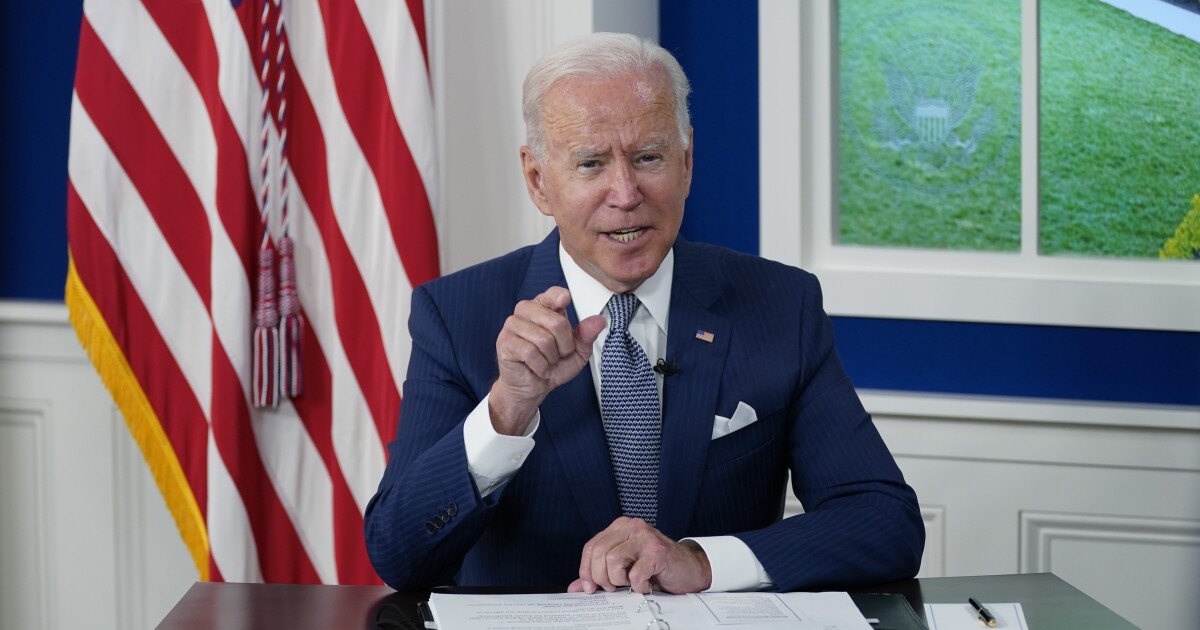The United States will double the number of doses of COVID-19 vaccines it donates to the global inoculation initiative, President Biden announced Wednesday.
The pledge will bring to more than a billion the total doses that the United States promised to other countries in the hope of ending the pandemic and preventing dangerous variants from emerging. It is estimated that all donations will be sent by this time, next year.
“This is a global tragedy,” Biden said during a virtual summit on COVID-19, convened during the United Nations General Assembly. “And we are not going to solve it with half measures.”
The highly contagious Delta variant, first detected in India, underscored the danger of uncontrolled spread, which could emerge in unvaccinated communities and cause another surge in deaths. “To beat the pandemic here, we have to beat it everywhere,” stressed Biden.
The president urged other wealthy nations to follow the example of the United States and increase their own donations, calling the issue “a crisis that requires getting to work.”
So far, the United States has shipped 160 million doses. The vaccines are provided “free of charge, without conditions,” said a senior administration official, who was not authorized to speak publicly before Wednesday’s announcement.
The United States has been under pressure to contribute more vaccines to other countries, especially as administration officials prepare to make booster doses available this year, which means that some Americans will likely receive three doses when many people in countries poor have not even received one.
UN Secretary General António Guterres said Tuesday that the uneven distribution of vaccines is “a moral indictment of the state of our world.” More than 70% of the 5.7 billion doses applied globally went to just 10 countries, according to the World Health Organization.
For Dr. William Parker, a medical ethicist and assistant professor of pulmonary medicine and intensive care at the University of Chicago, sending doses abroad “would do a lot more good” in terms of saving lives.
A panel advising the Food and Drug Administration (FDA) last week rejected a plan that would have made the Pfizer-BioNTech vaccine boosters available to most Americans, in part because it was unclear how the third dose would contribute substantially to controlling the pandemic. The group supported the idea of giving the additional injection to those over 65 or those who are immunosuppressed.
Giving a healthy adult a booster to “prevent mild or asymptomatic infections at the cost of someone’s life in a low-income country seems unethical to me,” Parker emphasized.
Officials defended the administration’s plans, saying the country will donate three doses to other nations for each one administered to a patient in the United States.
In his speech to the UN on Tuesday, his first as president, Biden described the pandemic as a collective challenge. “We are in mourning for more than 4.5 million people, people of all nations, of all origins,” he said. “Each death is an individual heartbreak, but the shared pain is a poignant reminder that our collective future will depend on the ability to recognize our common humanity and act together.”
Dr. Walter A. Orenstein, associate director of the Emory Vaccine Center, considered that producing enough vaccines will be a challenge. “The manufacturing capacity in general has been adequate for the vaccines that we use regularly,” he stressed, because not all people in the world have needed vaccines against all diseases. But now, everyone needs this immunization and manufacturing capacity cannot meet that demand, he added. “You cannot accelerate the process overnight and vaccinate the entire planet,” he said. The industry was never forced to produce “nowhere near the amount of doses that we need at the moment” to combat COVID-19, he stressed.
For his part, Biden stressed that his administration is working with other countries to increase its own manufacturing capacity. He added that there are plans underway to produce 1 billion doses in India and another 500 million in South Africa next year.
To read this note in English, Click here.
–


